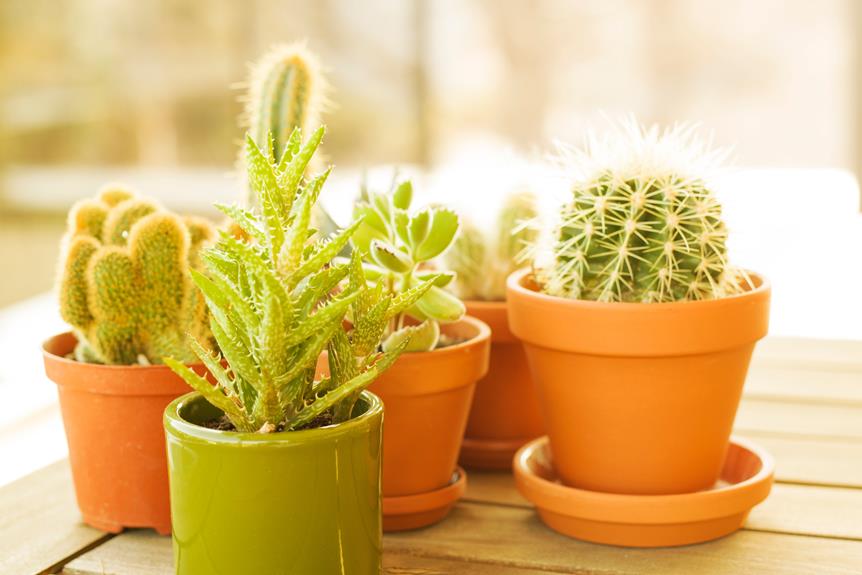Why Is Composting Beneficial for Green Living?
We all want to make a positive impact on the environment, and composting is an easy and effective way to do just that. By turning food scraps and yard waste into nutrient-rich soil, we can reduce landfill waste, improve soil quality, and save money on fertilizers.
Composting also helps decrease greenhouse gas emissions, prevent water pollution, and support sustainable gardening practices.
Join us as we explore the many benefits of composting for a greener, more sustainable future.
Reduces Landfill Waste
Composting significantly decreases the amount of waste sent to landfills. By composting organic materials such as food scraps and yard waste, we can divert these materials from ending up in landfills where they contribute to greenhouse gas emissions. In landfills, organic waste decomposes anaerobically, producing methane, a potent greenhouse gas.
By composting, we create an aerobic environment that promotes the breakdown of organic matter in a way that minimizes methane production. This not only reduces greenhouse gas emissions but also helps to conserve landfill space.
Additionally, composting enriches soil with valuable nutrients, improving soil health and reducing the need for chemical fertilizers.
Therefore, incorporating composting into our daily lives not only benefits the environment but also helps create a more sustainable and resilient ecosystem for future generations.
Improves Soil Quality
Improving soil quality is a key benefit of incorporating composting into our green living practices. Composting helps to enrich the soil by providing essential nutrients and improving its structure. Here are three ways composting can improve soil quality:
- Increases nutrient content: Compost is packed with essential nutrients, such as nitrogen, phosphorus, and potassium, which are vital for plant growth. By adding compost to the soil, we replenish these nutrients, ensuring healthy plant development and improved crop yield.
- Enhances soil structure: Compost acts as a natural soil conditioner, improving its structure and texture. It helps sandy soils retain water and nutrients, while it aids in loosening heavy clay soils, allowing better root penetration. This improved soil structure promotes better water and air circulation, enabling plants to thrive.
- Promotes biodiversity: Compost supports a diverse community of beneficial microorganisms, earthworms, and other soil organisms. These organisms break down organic matter, creating a nutrient-rich environment that fosters biodiversity. This, in turn, enhances soil fertility, plant health, and overall ecosystem resilience.
Incorporating composting into our green living practices not only improves crop yield but also promotes biodiversity, creating a healthier and more sustainable environment for all.
Saves Money on Fertilizers
Composting saves money on fertilizers by providing a natural and cost-effective way to enrich soil. Instead of purchasing expensive chemical fertilizers, composting allows us to recycle organic waste and create nutrient-rich compost that can be used as a natural fertilizer.
Natural Soil Enrichment
By enriching our soil naturally through composting, we can save money on fertilizers. Here are three reasons why natural soil enrichment is beneficial for green living:
- Reduced need for chemical fertilizers: Composting provides essential nutrients to the soil, reducing the reliance on synthetic fertilizers. These chemical fertilizers can be expensive and may have negative impacts on the environment.
- Improved soil structure: Compost enhances soil structure, making it more fertile and capable of retaining moisture. This results in healthier plants that require less external inputs, like fertilizers.
- Sustainable and organic farming: Organic farming methods, such as composting, align with organic farming techniques. By using compost as a soil amendment, farmers can avoid the use of synthetic chemicals and promote sustainable agricultural practices.
Reduces Landfill Waste
To reduce landfill waste and save money on fertilizers, we can actively participate in composting.
Composting is a process that converts organic waste into nutrient-rich compost that can be used to enrich the soil in our gardens and landscapes.
By diverting organic waste from landfills, we reduce the amount of waste that ends up in these facilities, saving valuable space and reducing the need for new landfills.
Additionally, composting eliminates the need for synthetic fertilizers, which are costly and can have negative environmental impacts.
Instead, by using compost as a natural fertilizer, we not only save money but also promote healthier soil and plant growth.
There are various composting techniques, such as backyard composting, vermicomposting, and composting bins, that make it easy for anyone to get started and reap the numerous benefits of composting.
Ecosystem Sustainability Promoted
As we divert organic waste from landfills through composting, we promote ecosystem sustainability and save money on fertilizers. Composting provides numerous benefits for preserving ecosystems and conserving biodiversity. Here are three reasons why composting contributes to ecosystem preservation:
- Improved soil health: Compost enriches the soil by adding vital nutrients and organic matter. This enhances soil fertility and structure, leading to healthier plants and increased biodiversity.
- Reduction in chemical fertilizer use: Composting reduces the need for synthetic fertilizers, which can have harmful effects on the environment. By using compost instead, we can minimize the release of pollutants into our ecosystem.
- Enhanced water retention: Compost improves soil’s ability to retain water, reducing the need for irrigation. This helps conserve water resources and supports the sustainability of local ecosystems.
Decreases Greenhouse Gas Emissions
Composting significantly reduces greenhouse gas emissions, making it an essential practice for sustainable living. When organic waste, such as food scraps and yard trimmings, decompose in landfills, they release methane, a potent greenhouse gas. By composting these materials instead, we can divert them from landfills and prevent methane production.
According to studies, composting can reduce greenhouse gas emissions by up to 30%. This reduction in greenhouse gases has a positive environmental impact, as it helps mitigate climate change and improve air quality. By participating in composting, we contribute to a greener future and help create a healthier planet for ourselves and future generations.
Prevents Water Pollution
Composting is a crucial practice that helps prevent water pollution in several ways.
Firstly, when organic waste is composted, it becomes a nutrient-rich soil amendment that can improve soil structure and prevent soil erosion, reducing the chance of harmful runoff entering water bodies.
Secondly, by diverting organic waste from landfills, composting reduces the amount of waste that can potentially contaminate groundwater through leaching.
Lastly, composting decreases the need for chemical fertilizers, which can contribute to water pollution when they run off into rivers and streams.
Nutrient-Rich Soil Amendment
We enrich our soil and prevent water pollution by incorporating nutrient-rich compost into our gardening practices. Here are three reasons why nutrient-rich soil amendment is essential for maintaining soil fertility and supporting organic gardening:
- Improved nutrient content: Compost is a natural fertilizer that adds essential nutrients like nitrogen, phosphorus, and potassium to the soil. These nutrients are vital for healthy plant growth and development.
- Enhanced soil structure: Compost improves soil structure by increasing its ability to hold moisture and nutrients. It also promotes better aeration and drainage, which are crucial for root development and overall plant health.
- Reduced reliance on synthetic fertilizers: By utilizing nutrient-rich compost, organic gardeners can minimize their dependence on chemical fertilizers. This reduces the risk of water pollution from runoff, as compost releases nutrients slowly and in a more environmentally friendly manner.
Reduces Landfill Waste
Incorporating nutrient-rich compost into our gardening practices further contributes to green living by reducing landfill waste and preventing water pollution.
Composting benefits the environment by diverting organic waste from landfills, where it would decompose and produce harmful greenhouse gases. Instead, this waste can be turned into nutrient-rich compost through a natural decomposition process. By composting our organic waste, we not only reduce the amount of waste sent to landfills, but we also prevent the release of methane, a potent greenhouse gas that contributes to climate change.
Additionally, composting helps prevent water pollution. When organic waste is disposed of in landfills, it can contaminate nearby water sources through the leaching of harmful chemicals. By composting, we can minimize this risk and protect our water resources.
Decreases Greenhouse Gas Emissions
By diverting organic waste from landfills and turning it into nutrient-rich compost, we can’t only reduce landfill waste and prevent water pollution, but also decrease greenhouse gas emissions. Here are three reasons why composting is beneficial for reducing greenhouse gas emissions and minimizing the environmental impact:
- Methane reduction: When organic waste decomposes in landfills, it produces methane, a potent greenhouse gas. By composting organic waste instead, we can prevent the release of methane into the atmosphere, thereby reducing its contribution to climate change.
- Carbon sequestration: Compost can act as a carbon sink, drawing carbon dioxide from the atmosphere and storing it in the soil. This helps to mitigate the effects of greenhouse gas emissions, as carbon dioxide is a major contributor to global warming.
- Soil health improvement: Compost enhances soil fertility and structure, allowing plants to grow more efficiently. Healthy plants absorb more carbon dioxide through photosynthesis, further aiding in greenhouse gas reduction.
Encourages Sustainable Gardening Practices
Encouraging sustainable gardening practices includes implementing composting as a key method for reducing waste and nourishing the soil. Composting benefits the environment by diverting organic waste from landfills and reducing the need for chemical fertilizers.
By composting, gardeners can create nutrient-rich soil amendments that improve soil structure, retain moisture, and promote healthy plant growth. Sustainable gardening techniques, such as using compost as a natural fertilizer, help to minimize the use of synthetic chemicals that can harm the environment and human health.
Composting also reduces the need for water and energy-intensive practices, such as irrigation and transportation of commercial fertilizers. By incorporating composting into their gardening routine, individuals can contribute to a more sustainable and eco-friendly approach to gardening while enjoying the rewards of a thriving and vibrant garden.
Supports a Circular Economy
Composting supports the creation of a circular economy by closing the loop on organic waste and promoting sustainable resource management practices. Here are three ways composting benefits the circular economy:
- Reduces waste: Composting diverts organic waste, such as food scraps and yard trimmings, from landfills. Landfills are major contributors to greenhouse gas emissions, but by composting, we can significantly reduce these emissions and minimize the environmental impact.
- Creates valuable resources: Composting transforms organic waste into nutrient-rich compost, which can be used as a natural fertilizer for plants. By utilizing compost, we reduce the need for chemical fertilizers, thus promoting more sustainable and eco-friendly agricultural practices.
- Closes the nutrient loop: Composting allows us to return organic matter back to the soil, enriching it with essential nutrients. This closed-loop system ensures that valuable resources aren’t wasted and supports the sustainable growth of plants, contributing to healthier ecosystems and a more circular economy.
Conclusion
In conclusion, composting is a simple yet powerful way to contribute to green living.
By reducing landfill waste, improving soil quality, and saving money on fertilizers, we can actively decrease greenhouse gas emissions and prevent water pollution.
Additionally, composting encourages sustainable gardening practices and supports a circular economy.
So let’s join together and make a positive impact on our environment by embracing the benefits of composting.






